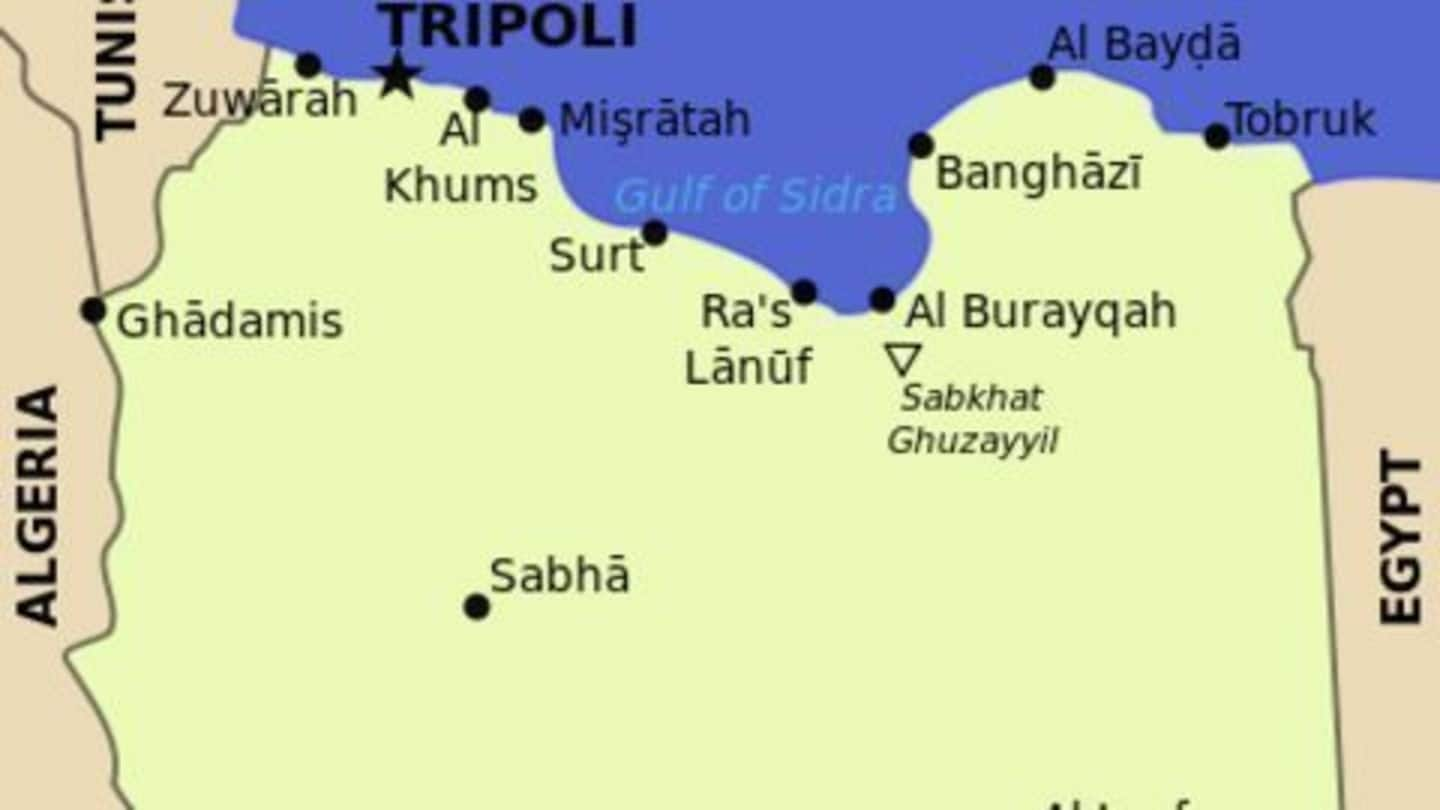
Attempted coup to overthrow UN-backed government in Libya
What's the story
Militias from Libya's Tripoli initiated a coup to overthrow the UN-backed 'Unity Government' by seizing important state buildings including Rixos hotel, a complex that houses state council assembly.
The militia issued a televised statement declaring the coup a "historic initiative to rescue Libya."
The coup plotters were led by National Salvation Government's leader Khalifa al-Ghwell.
Unity government ordered the arrest of coup leaders.
Profile
Libya - Country Profile
Libya is an oil rich North African country which gained independence in 1951.
Geographically it is bordered by Mediterranean Sea in the North, Egypt in the East, Sudan in the Southeast, Chad and Niger in the South, and Algeria, and Tunisia in the West.
It was ruled by autocrat Muammar Gaddafi from 1969 till 2011, when he was toppled by rebellion, assisted by NATO.
Developments
Libyan politics - Post 2011
After the ousting of Gaddafi's government and his consequent killing by the rebel National Transitional Council (NTC), a power vacuum was created in Libyan politics, giving rise to multiple political factions.
In 2012, NTC handed power to the General National Council (GNC), a transitional parliamentary body.
The 2014 parliamentary elections, won by liberal and nationalist groups, were disputed resulting in two rival governments.
Rival governments
The rival governments and their leaders
The elected government in 2014 set up its base in Tobruk, led by Libyan National Army's (LNA) General Khalifa Haftar.
Tripoli, the capital city was left to be controlled by Khalifa al-Ghwell, the leader of outgoing GNC or National Salvation Government, backed by Libya Dawn, an umbrella group of Islamist militias.
UN-sponsored peace efforts, to bring the two governments together, began in early 2015.
A third government
New UN-backed 'National Unity Government'
In Jan 2016, an interim-government of General National Accord (GNA) the 'National Unity Government' backed by the United Nations was announced, aiming to unite the country's warring factions.
The GNA is headed by the Prime Minister Fayez al-Sarraj.
Neither of the already existing governments from Tobruk or Tripoli recognized the new government's authority, thus Libya has ended up with a total of three governments.